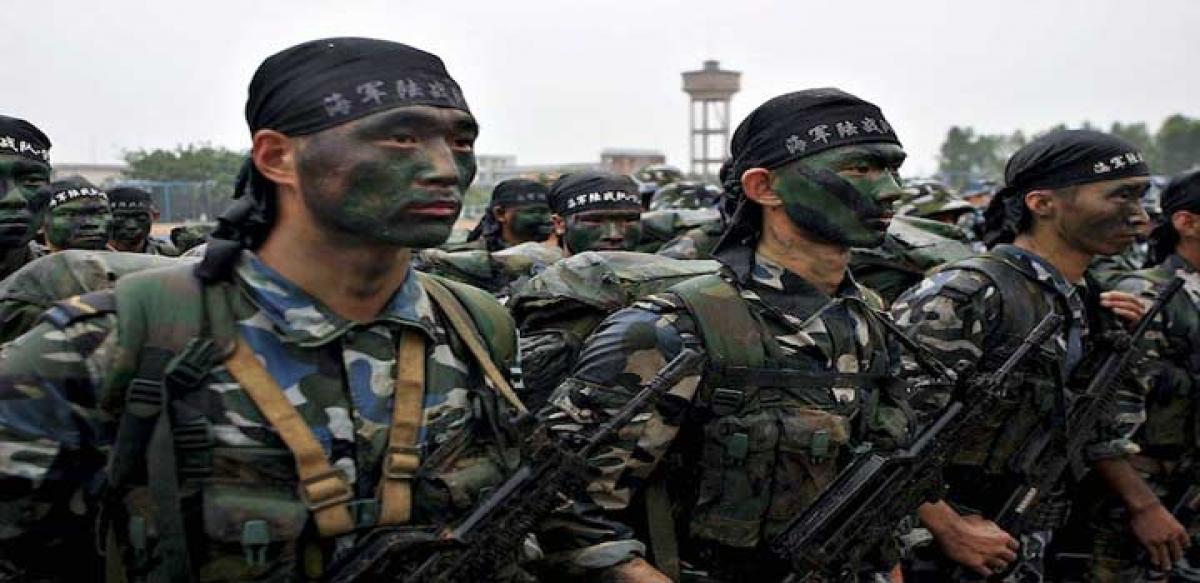Live
- Bad air: 106 shuttle buses, 60 extra Metro trips planned to make Delhiites give up cars
- WHO reports declining monkeypox cases in Congo
- CM Attends Kotideepotsavam on Kartika Purnima
- PKL Season 11: Raiding trio of Devank, Ayan, Sandeep help Patna Pirates rout Bengal Warriorz
- Food waste crisis fuels sustainable practices across APAC food & beverage industry: Report
- AI helps erase racist deed restrictions in California
- ATMIS completes third phase of troops' drawdown in Somalia
- PM Kisan Samman Nidhi scheme bringing smile to Nalanda farmers
- German economy forecast to lag eurozone growth until 2026
- CM Shinde orders stern action against hoarding of onions amid rising prices
Just In

Japan’s military shift. Opposition parties in Japan have introduced several censure motions against ministers and parliamentary leaders, delaying the vote on new changes in the military doctrine, called collective self-defence, and the foreign policy of the nation.
Opposition parties in Japan have introduced several censure motions against ministers and parliamentary leaders, delaying the vote on new changes in the military doctrine, called collective self-defence, and the foreign policy of the nation.

The Shinzo Abe cabinet, which controls both Houses of Parliament known as Diet, has pushed for a change that would revise the laws such that Japan's military would be able to mobilise overseas when these three conditions are met: when Japan is attacked, or when a close ally is attacked, and the result threatens Japan's survival and poses a clear danger to people; when there is no other appropriate means available to repel the attack and ensure Japan's survival and protect its people; and use of force is restricted to a necessary minimum.
The changes re-interpret rather than formally change the constitution. But critics say this will violate the pacifist constitution and could lead Japan into unnecessary US-led wars abroad. The impassioned debate surrounding Prime Minister Shinzo Abe's desire to give Japan's defence forces a wider role obscures the fact that the country is already a significant military player.
Japan's post-World War Two constitution bars it from using force to resolve international conflicts except in cases of self-defence. The defeat of Japanese militarism in World War Two and the experience of suffering the world's only atomic bomb attacks left the country with a deep vein of pacifism.
But Japan's strategic geography - proximity to both the then-Soviet Union and China - meant that it ultimately needed to deploy its own basic defence forces. Their role though was heavily circumscribed and Japan avoided all foreign military entanglements. Some 70 years later, the picture has changed dramatically.
The Cold War may be over and the Soviet Union no more but now a rising China is driving security concerns in the region. Given the potential threat from North Korea's missile arsenal, Japan is showing a growing interest in ballistic missile defence and expanding its military role abroad. But above all it is China's widening security horizons that are driving Japan's military modernisation.
The public, while recognizing the threats, remains uncomfortable at best with the changes. Those opposed outnumber supporters by a wide margin in media polls, and rallies against the bills and Abe himself have swelled into the tens of thousands in recent months, unusually large for Japan.

© 2024 Hyderabad Media House Limited/The Hans India. All rights reserved. Powered by hocalwire.com







